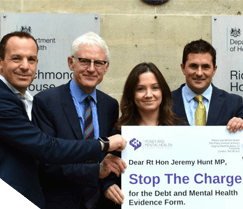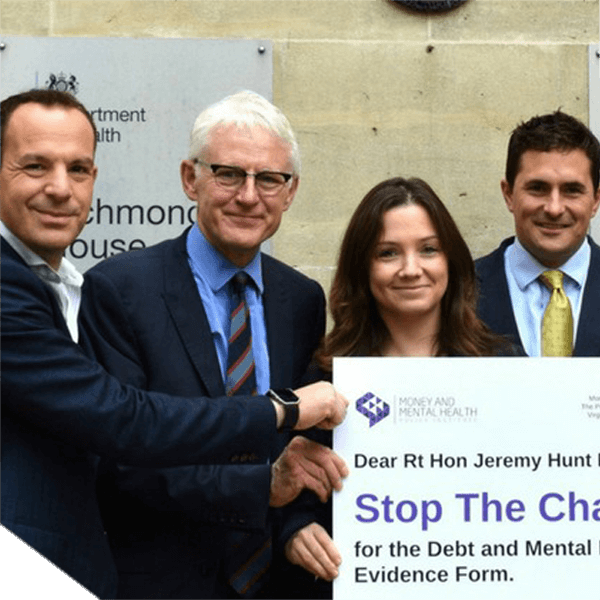
#StopTheCharge – You did it
PM announces a review of charges for the debt and mental health doctor’s note
Today Theresa May made a commitment to review unfair GP charges for paperwork needed by people with mental health and debt problems, as a result of our campaign. In a speech at the Charity Commission the Prime Minister announced:
“Despite known links between debt and mental health, currently hundreds of mental health patients are charged…by their GP for a form to prove they have mental health issues. To end this unfair practice the Department for Health will undertake a formal review of the mental health debt form, working with the Money and Mental Health Policy Institute.”
This is a significant victory for all the campaigners who gave their backing to the campaign. From the fourteen leading mental health and advice charities who came on board, to the cross-party coalition of MPs, high profile figures like Alistair Campbell and, most of all, the 2,000 people who signed their names on our open letter to Jeremy Hunt – we couldn’t have done it without you.
Not just paperwork
Last October we launched the campaign following an investigation which revealed that people with mental health problems and debt are being charged up to £150 for a doctor’s note required by their creditors to prove that they are unwell and should receive extra support.
One in four people with a mental health problem is also in problem debt, debt that can make mental health recovery take longer. Many banks recognise this and are willing to offer extra financial support, freezing interest payments or even writing off some debts when people are struggling. But to access this help customers are often asked to provide evidence of their mental health problem, signed by a doctor. We found that one in three people who asked for this form were being charged, leaving many either in greater financial difficulty or going without this help as they couldn’t pay their GP.
This is clearly unacceptable. Research suggests that resolving debt problems for people with mental health problems could increase fourfold their chances of recovery from depression within eighteen months. If there was a medication that had such a profound effect, there isn’t a GP in the country who wouldn’t prescribe it. GPs should be proactively offering to complete these forms for their patients, not charging for them.
Next steps
We’re delighted that Theresa May has listened and committed to addressing this as one of the many injustices faced by people with mental health problems. We’ll be working hard to make sure that this review results in a complete end to GP charges for the debt and mental health evidence form.
